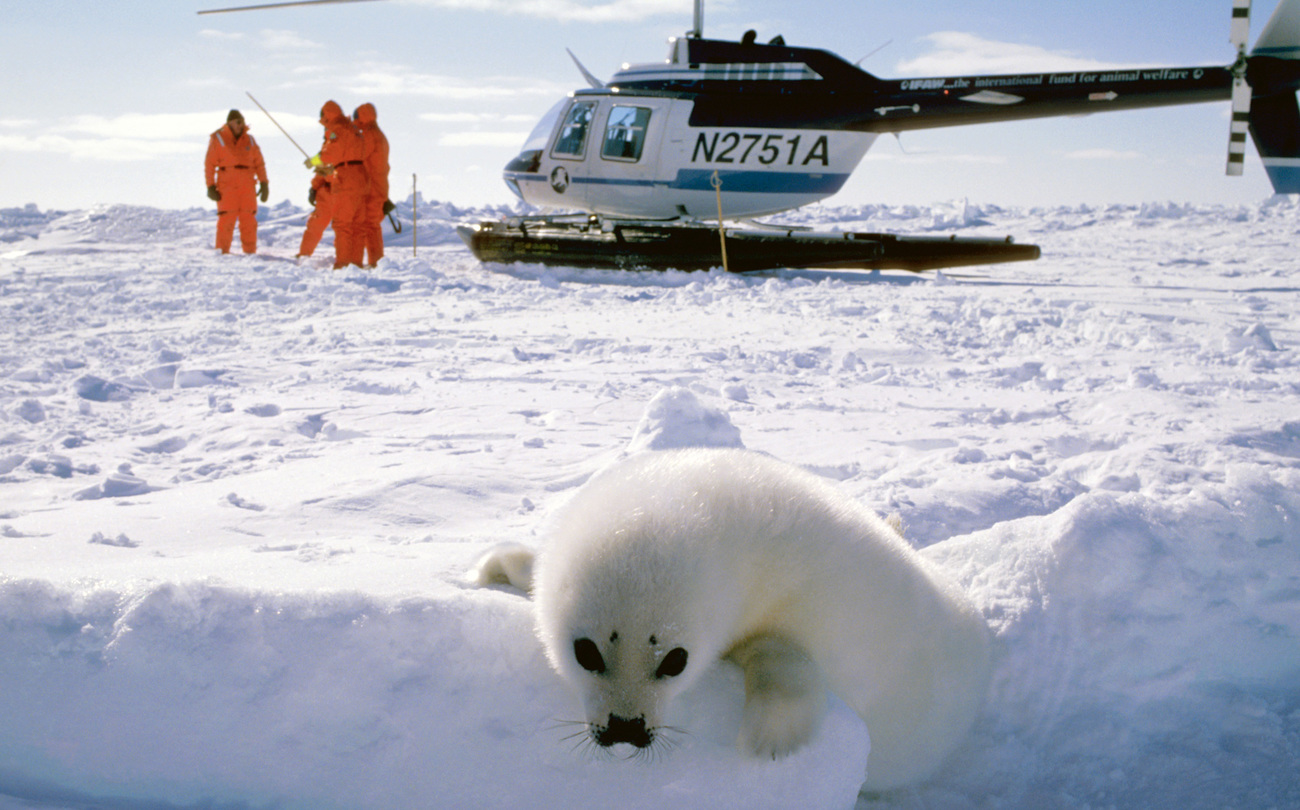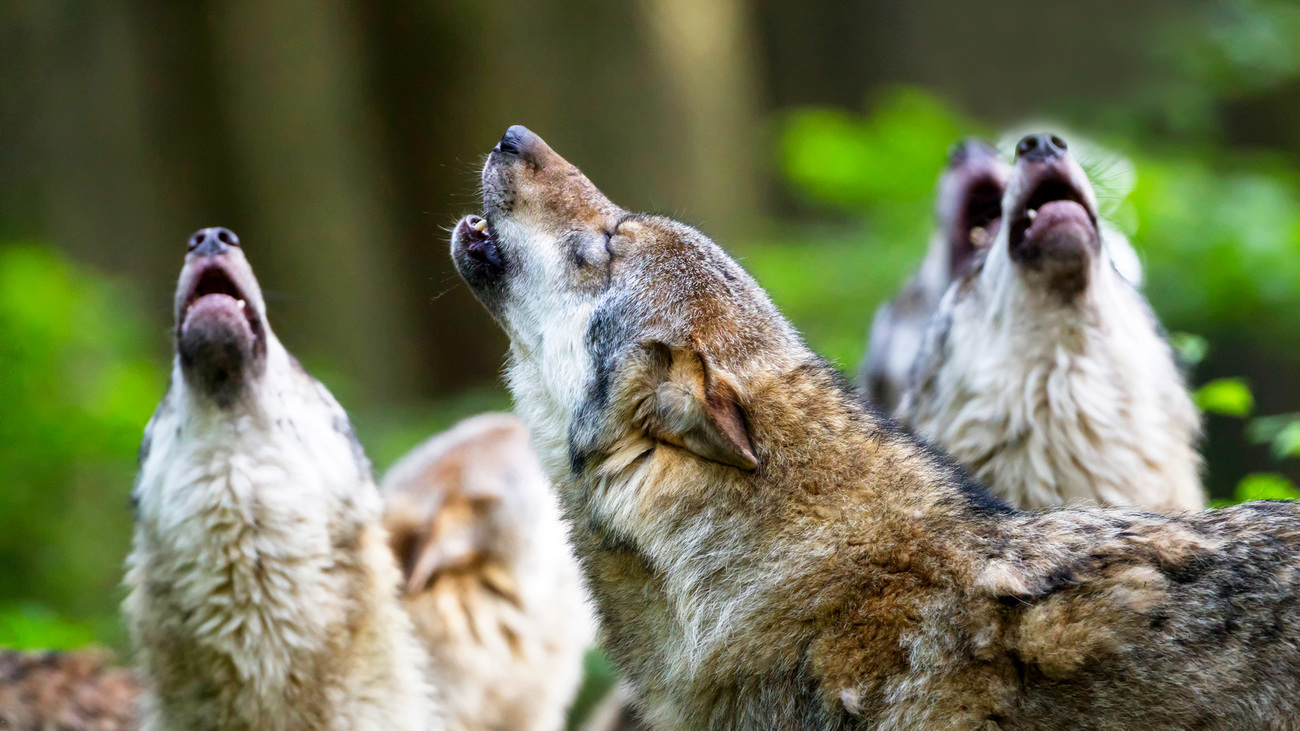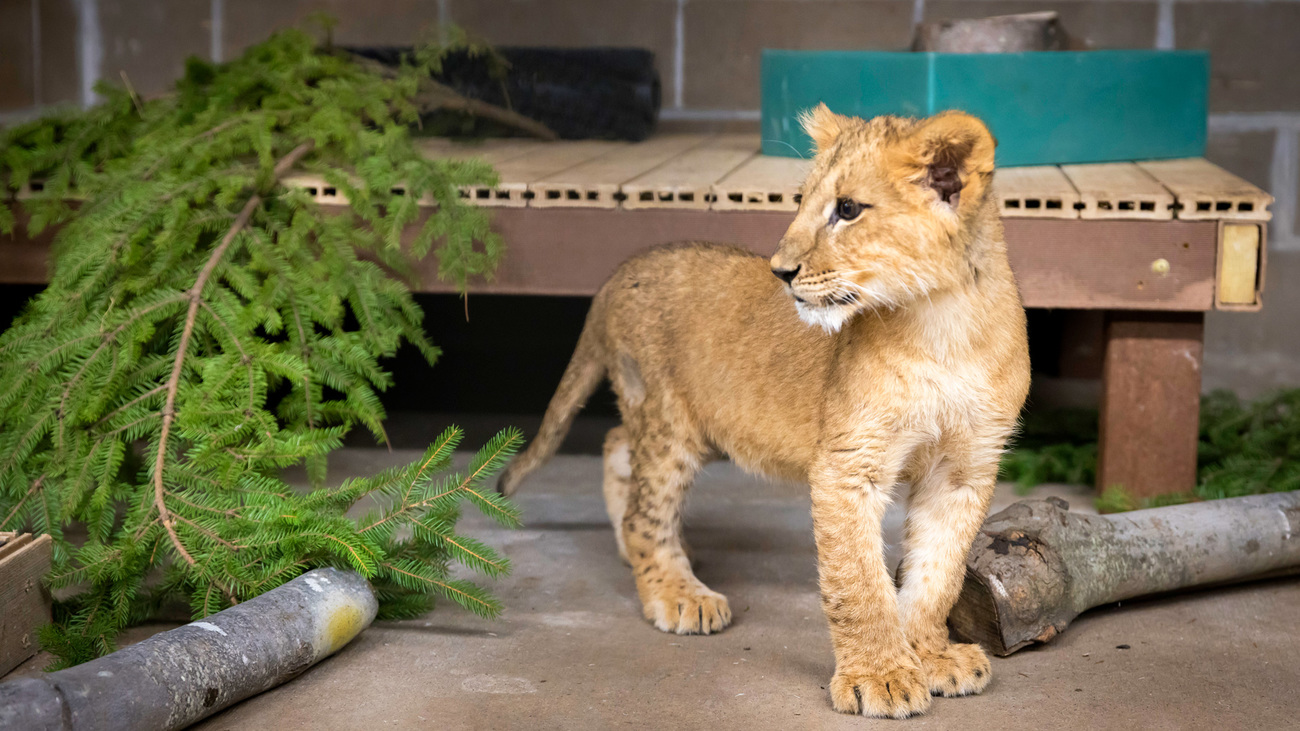Updates
How IFAW has helped animals and people during the Ukraine crisis
Learn moreWhat is animal welfare?
In recent years, the topic of animal welfare has gained significant attention and importance due to growing awareness of the ethical, environmental, and societal implications of how we treat animals. But what exactly is animal welfare, what does it look like in practice, and how can we ensure we are centreing the welfare of animals and wildlife in our conservation efforts?

IFAW is a conservation organisation that is rooted in animal welfare. In this blog, we explore these topics in depth and cover some of the work IFAW has been doing to promote and enhance animal welfare across the globe through our conservation and policy initiatives.
Settling on a single definition of animal welfare can be difficult as it is such a broad concept, encompassing the wellbeing of animals in various contexts, including their physical, mental, and emotional states. At IFAW, we define animal welfare as the physical and mental wellbeing of animals; physical, physiological, and behavioural measurements are used to assess animal welfare.
The World Organisation for Animal Health clarifies that welfare refers to the state of the animal; the treatment that an animal receives is covered by other terms such as animal care, animal husbandry, and humane treatment. The treatment of an animal can, however, contribute to an animal’s welfare, resulting in poor or good welfare.
At its core, animal welfare refers to the quality of life experienced by animals. Good welfare is not the just the absence of pain and suffering; positive experiences and emotions (companionship, contentment, curiosity, etc.) are critical to ‘a life worth living’, one of the defining criteria for good welfare.
As we discuss in our Guiding Principles, animal welfare is both a science and a philosophical position. Animal welfare science is concerned with making factual, objective assessments of animal welfare based on physical and mental wellbeing in relation to the quality and suitability of the environments that they are in. It also strives to assess the need for and impact of any interventions made.
From a philosophical position, animal welfare is a bit more complex. In essence, it requires that the use of any animals must be justified by balancing the benefit to wider society against the cost to the individual animal. Intensive farming is a good example. From an animal welfare perspective, producing cheap eggs and meat for human consumption doesn’t justify the suffering endured by the animals in these farms.
There are a number of laws, guidelines, and legislations that have been passed around the world to codify the concept of animal welfare into law. The Animal Welfare Act 2006 in the UK is an example of such legislation. Under the Act, owners and keepers of animals have a legal responsibility to provide for any animals under their care, ensuring all of their needs are met, including providing suitable environments and diets.
Unfortunately, there are many places around the world where there are no laws in place to ensure the welfare of animals. Despite animal sentience becoming more widely recognised, many countries are still yet to formally put animal welfare laws in place, and where they exist, they are unevenly enforced. IFAW believes that as animals are sentient beings, their welfare should be integrated when formulating and implementing policy.
Let’s explore some of the reasons why animal welfare is so important and why it should be a priority for governments and conservation organisations.
Treating animals with compassion and respect reflects our values as a society. Many, including IFAW, believe that animals have intrinsic value and their wellbeing is important to them. They deserve to be treated ethically, regardless of their utility to humans. Ensuring good animal welfare aligns with principles of justice and empathy.
The exotic pet trade, industrial farming practices, and other forms of animal exploitation can have significant environmental consequences, including biodiversity loss, deforestation, habitat destruction, and increased greenhouse gas emissions. By promoting better animal welfare practices, we can mitigate some of these environmental impacts and promote sustainability.
Poor animal welfare practices, such as the transport of wild animals through the illegal wildlife trade, can contribute to the spread of diseases that can affect both animals and humans. Ensuring good animal welfare can help reduce the risk of disease transmission and promote public health.
From a purely pragmatic perspective, investing in animal welfare can lead to long-term economic benefits for industries that rely on animals, such as agriculture and tourism. Healthy animals that are allowed to thrive in their wild habitats are crucial for preserving biodiversity and maintaining functioning ecosystems. Likewise, well-cared for domestic animals are more productive and efficient, leading to improved quality and quantity of products and services.
It’s important to centre discussions around animal welfare on real-world examples and practices. This is a pressing issue that is all too common, making it important to highlight specific concern areas.

Wildlife trafficking and the exotic pet trade involves taking animals out of their natural habitats and transporting them across the world, often in crowded, unsanitary, and unsafe conditions. This is extremely traumatising and unhealthy for wild animals, who often perish or never fully recover.
Industrial farming practices, characterised by intensive confinement, overcrowding, and routine use of antibiotics, can cause significant suffering to animals raised for food, including disease, mental suffering, extreme pain, and death.
Although one of the goals of conservation is to protect animals, it can come with unintended consequences for wildlife and the people who live alongside them. Conservation efforts require thoughtful planning and execution, considering factors such as habitat preservation, population management, and minimising human-wildlife conflicts.
Animals used in entertainment, such as circuses, marine parks, and tourist attractions, may experience significant stress and abuse. Promoting alternatives to exploitative forms of animal entertainment, such as wildlife watching tours that prioritise responsible observation in natural habitats, can support animal welfare while still allowing for human enjoyment and appreciation of animals.
Here at IFAW, we take animal welfare seriously. As a conservation organisation rooted in animal welfare, we work to ensure the welfare of wildlife through rescue and rehabilitation, policy initiatives, and the protection of landscapes.
IFAW was first founded to end the Canadian commercial seal hunt. This was back in 1969 when harp and hooded seal pups were clubbed to death by hunters for their pelts and other parts.
Europe banned the importation of ‘whitecoat’ harp seal and blueback hooded seal products in 1983, thanks in part to the efforts of IFAW. However, the Canadian government increased quotas and introduced massive subsidies for seal hunting in the wake of the Atlantic cod fisheries collapse.
IFAW partnered with European politicians to implement a European ban on all seal products and although this ban was contested by Canada and Norway, the number of Canadian sealers dropped by 90%. The ban helped to save over 1 million seal pups over the following decade.
Today, Canada is attempting to market seal meat as a delicacy to promote the hunt once again. IFAW is committed to ending this cruel and unnecessary practice.
There are an estimated 10,000 big cats in captivity in the US and more tigers in captivity in the US than in the wild. These shocking statistics speak to the problem of big cat captivity all around the world.
These majestic animals are often kept in poor conditions without enough space, the proper diet, or sufficient veterinary care, leading to extreme suffering.
That’s why IFAW established the Big Cat Sanctuary Alliance in 2017, a network of legitimate sanctuaries for big cats that do not buy, breed, sell, exploit, or trade animals. Alongside rescuing these big cats from captivity, we are also working to end the trade in captive big cats in the US with the Big Cat Public Safety Act, which was signed into law in December 2022.
In the past 15 years, our sanctuaries have saved 218 big cats, with 60 big cats currently receiving relief.

IFAW has provided emergency aid to Ukraine to support local partners in their rescue and evacuation of animals impacted by the war. We’ve supported many success stories of animal rescue, rehabilitation, and reunification.
In May 2024, for instance, we supported the evacuation of all 38 horses from the Dergachi Youth Horse Riding School—not a moment too soon, as the riding school was destroyed by a missile attack days later.
We’ve also supported the care of big cats at Wild Animal Rescue, including lions and tigers. These animals were rescued from breeders and private owners who could no longer care for them due to the war.
As of June 2024, we have helped 191,795 animals in Ukraine by providing local shelters with food, supplies, and veterinary services (including vaccinations, chipping, and sterilisation) and by supporting wildlife rescue centres with food and veterinary care for rescued native and captive wildlife.
In Canada, the government makes use of chemicals to help control wolf and coyote populations. The problem is that these deadly chemicals are used indiscriminately, not only killing target species but also any other animals—including pet dogs—that come into contact with the substances. In fact, over the past two decades, strychnine has poisoned more than 93 dogs in western Canada alone.
Contact with these chemicals often leads to agonising, drawn-out deaths for the afflicted animals. This indiscriminate poisoning is not only inhumane but is also a public safety risk, posing a danger to humans and their pets.
We are working to help end this chemical use, which has little basis in science, and promote a new paradigm for humane and non-lethal methods to reduce and prevent human-wildlife conflicts.
For more information about all of the work that IFAW is doing, make sure to visit our project pages and find out how you can get involved.
Our work can’t get done without you. Please give what you can to help animals thrive.
Unfortunately, the browser you use is outdated and does not allow you to display the site correctly. Please install any of the modern browsers, for example:
Google Chrome Firefox Safari